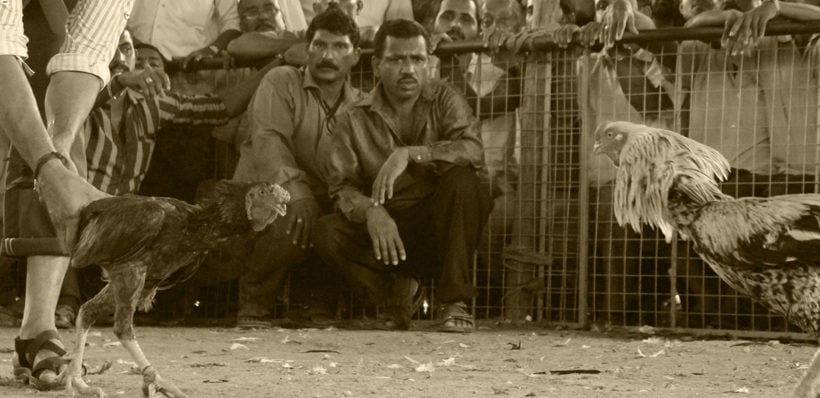Ethics and Politics
Allegra practises a ‘care review’ process. What does this mean and why do we do it?
Many of us came through institutions that instilled competition and the struggle over supremacy in weekly colloquia. We have experienced how a lack of care for others’ work not only creates a corrosive atmosphere among colleagues, but also eventually alienates people from their own work. If you expect others to treat your work as something to be attacked, you might seek to play it safe, build in protections, and lose all sense of exploration, playfulness and curiosity in your writing.
Allegra Lab is a space of care and mutual support; principles we find radical in the context of the neoliberal university that emphasises continuous but often fruitless competition and reproduces the dominant model of the lonely academic alpha (often but not always male) superstar as a result.
We believe that ‘blindness’ in reviewing often leads less to ‘objective’ quality control, but to some kind of textual social distancing in which we lose track of the people who poured their heart (and work and time and knowledge and passion) into a draft paper. An ethics of care, as we put forward here, changes that.
As such, contributors and reviewers will not be hidden from one another. Through care review, we connect scholars with related expertise and shared knowledge or approaches; both reviewee and reviewer have a chance to benefit from a genuine peer-to-peer collaboration, actively disregarding the hierarchies which are often established in a blind peer-review procedures, and not just between reviewers and contributors, but also between authors and editors.
We feel that this is the best way to foster collegiality and trust. As anyone who has ever been in a trusting relationship knows, trust is predicated on vulnerability (on openness to be affected).
We hope reviewing for Allegra can not only be a critically rigorous and serious task, but also a joyful and creative one.
Multimodal note: some forms of multimodal scholarship invite reviews that can lead to substantial changes before publication, others do not. As such our review system adapts to the media – i.e. sometimes the review might accompany a film when published.
Notes for reviewers
When a reviewer agrees to take on a work, it is the gift of their time to their academic community, and we recognise and celebrate this. We don’t want our reviewers to feel like their work is a chore, but an act of generosity.
Reviewers can choose to either write their comments back via email or within the piece itself where possible via track changes and in-text comments.
Be rigorous and critical, but in a constructive manner
Being caring doesn’t mean you should forgo being critical. Critical thinking is one of the bedrocks of a good review. Holding up arguments to logical scrutiny, assessing appropriate applications of theoretical frames and concepts and interrogating the political context within which a piece is written are all key tenets of a critically rigorous and serious peer review.
Be joyful
There’s joy in a well crafted piece of anthropology, joy in the most despairing moments, joy in helping another anthropologist make a meaningful contribution.
Be creative
Creating knowledge is a communal and collective endeavour.
For example, it’s the easiest thing in the world – once one has read enough – to point to an article or book and say ‘you didn’t engage with this key theory’. It’s much harder to think about how the piece you are reviewing can benefit from an engagement with another piece of work. Knowledge creation is done through dialogue and engagement with ideas. Knowledge does not emanate from head a genius sitting alone. Join in the creative process.
Be allie-ful
Join the review process as an ally/allie. There’s at least two ways you can be an academic. The bad way: destroy everyone’s work as a way of proving your own intelligence and brilliance. Better way: be generous and supportive whilst being intelligent and brilliant.
Be generous
It’s good practice to demonstrate you’ve made the effort of trying to understand the author’s argument (by briefly restating what you’ve understood of it in your own words) before offering your criticism. This helps the author see whether their argument comes across as intended, and re-reading your own ideas in someone else’s words helps clarify your own thinking. It is also important to be generous in explaining your comments and criticism in such a manner that the author can understand where you can coming from and how they relate to/improve the paper.
Be mindful about hierarchies of comments
Which comments are most important — what are empirical/factual or conceptual shortcomings that weaken the core argument (and that, in a journal submission, would make the difference between minor revisions and revise and resubmit)? And which are the ‘minor points’ that an author could/should address when doing revisions, but that are less fundamental? If there are serious issues with the argument, focus your comments on these, no need to then spend too much time and energy on pointing out typos.
Be aware of your tone
It can be healthy and intellectually stimulating to disagree — sometimes strongly — with someone’s argument or interpretation. But don’t abuse the review process to lash out and be nasty (or show off). Especially when people are sharing work in progress or if they are junior to you, be supportive. Generally: voice your disagreement in a way that you would feel comfortable saying to someone’s face and back it up with evidence… and by evidence, we mean: references to: further scholarship, the substance of the empirical material, contradictions in the way the argument is presented, etc.
photo by Ian M Cook

